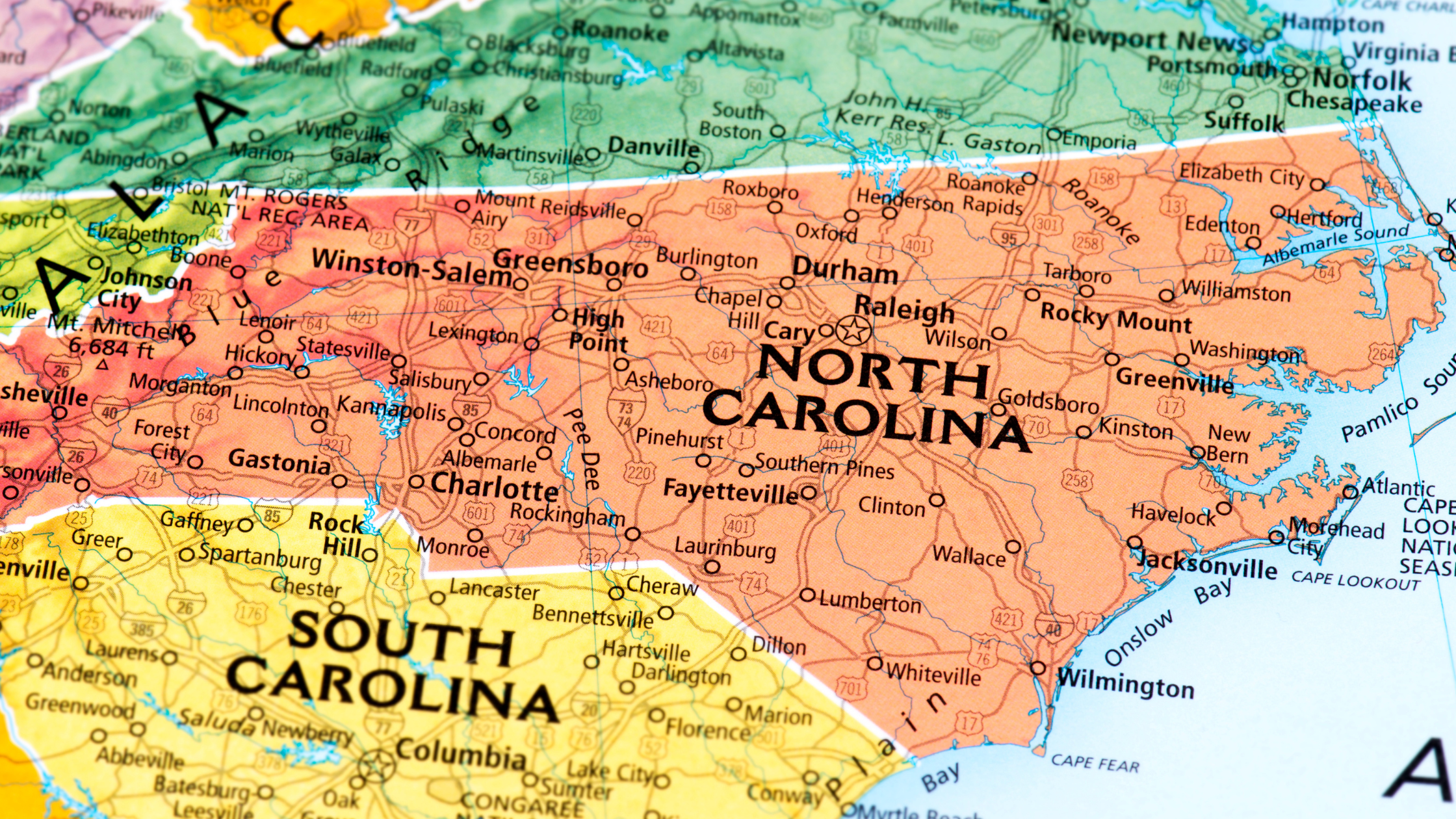Key takeaways
North Carolina offers plenty of agricultural and commercial land investment opportunities. Here’s why:
-
The state’s booming population strengthens long-term land appreciation prospects for agricultural and commercially viable areas. With a solid land loan in North Carolina, you can take advantage of the rising demand and establish a strategic foothold in a market poised for growth.
-
Both agricultural and commercial land can provide more stable returns compared to stocks. You can lease agricultural land to farmers or develop commercial property for consistent income streams.
-
North Carolina offers attractive tax breaks for both sectors. Agricultural land often qualifies for lower property taxes and other incentives to support farming. Conservation easements on suitable land can provide additional tax benefits while preserving the natural environment. Strategically zoned commercial land may also qualify for tax breaks to encourage development.
Are you considering buying agricultural or commercial land in North Carolina? In addition to understanding what makes the local market tick, you must secure the right land loan to realize your investment goals.
Why invest in Land Loan in North Carolina?
Ranked number one in CNBC’s list of top states for business in 2023, North Carolina offers plenty of opportunities for CRE investors looking for commercial or agricultural land to develop.
This top relocation destination in the US boasts an Atlantic coastline and a unique landscape that stretches from the Appalachian Mountains to beautiful beaches.
It also has a robust economy powered by banking, technology, research, and agriculture — not to mention reputable universities and tourist attractions. This backdrop creates a lucrative environment for CRE land investments.
Thriving population and job market
The state’s population (now 10 million) has expanded by over 10% in the past decade, with cities like the Triangle and Charlotte leading the growth. This demographic expansion has increased demand for land and positions the current market as an optimal investment opportunity for CRE players.
Attractive taxes for businesses
Did you know that North Carolina’s tax rates are among the most attractive in the country?
With the lowest corporate tax rate nationwide, the state makes a compelling case for CRE investors who want to maximize their return on investment while minimizing tax liabilities.
Diverse investment opportunities
North Carolina offers a broad spectrum of opportunities for all kinds of commercial and agricultural land investors — from those drawn to dynamic urban environments to those who prefer the tranquil settings of rural areas.
Technological expansion in cities like Raleigh and the tourism-driven economy of places like Asheville show the varied CRE investment opportunities ready for exploration.
Beyond these reasons, North Carolina is one of the most productive states in the US. Its mild climate extends the growing season, making it ideal for various agricultural pursuits.
The state’s well-developed infrastructure also positions commercially zoned land for solid business opportunities.
If you’re interested in diversifying your portfolio, buying a mix of agricultural and commercial land in North Carolina can reduce your overall investment risk.
Agricultural land provides stable income and potential for appreciation, while commercially zoned land offers the possibility of higher returns through development projects.
Points to ponder before investing in land in North Carolina
Before investing in land in North Carolina, look at the whole picture and do your homework. Here are some factors to think about:
1. Coastal storm risks
Are you eyeing a coastal property? Storms and flooding are possible in such areas, so be sure to factor in the cost of insurance and flood mitigation strategies to safeguard your investment.
If you plan to build on the land, you will buy it later, and you will likely need to invest in construction methods and materials that comply with the latest hurricane resilience standards.
2. Property tax variations
Always check county-specific rates before making any CRE investment. If you want to buy farmland, research agricultural tax exemptions in your area of interest for accurate financial planning.
3. Development approvals
The permitting process in North Carolina is more stringent than in other states. It would help if you planned for environmental impact assessments, especially in ecologically sensitive areas like the Appalachian and coastal regions.
It’s also essential to stay informed on county-specific development codes. Work with local planning departments early in your project to streamline this process.
4. Competitive hotspots
Demand for prime land can create intense competition in cities like Charlotte and Asheville. If you want to succeed in these markets, be flexible and prepared.
It’s a good idea to pre-arrange financing to make quick and confident decisions on time-sensitive deals.
Securing a land loan in North Carolina
CRE investing involves more than selecting the ideal piece of land. It’s crucial to ensure that your financial base is vital, and finding a suitable land loan in North Carolina that offers terms and rates matching your investment goals is critical.
Finding the right financial match
A land loan in North Carolina should support your entire investment journey — from buying the land to planning future development.
Find an experienced lender who understands land investment’s unique challenges and opportunities (including the potential complications of securing development permissions in North Carolina). Their knowledge can help you steer clear of possible obstacles.
Work with Private Capital Investors to secure a land loan in North Carolina.
Suppose you are looking to buy land in North Carolina. Whether buying farmland for sustainable agriculture, raw land for development, or commercial land to build retail complexes, you need CRE (Commercial Real Estate) financing experts.
Private Capital Investors can help. As direct lenders, we offer land loans in North Carolina and other alternative financing solutions (such as hard money, bridge, and stated income loans) for CRE investors who want to capitalize on the state’s growth potential. Call (972) 865-6205 to learn more about your project and explore our financing options.





